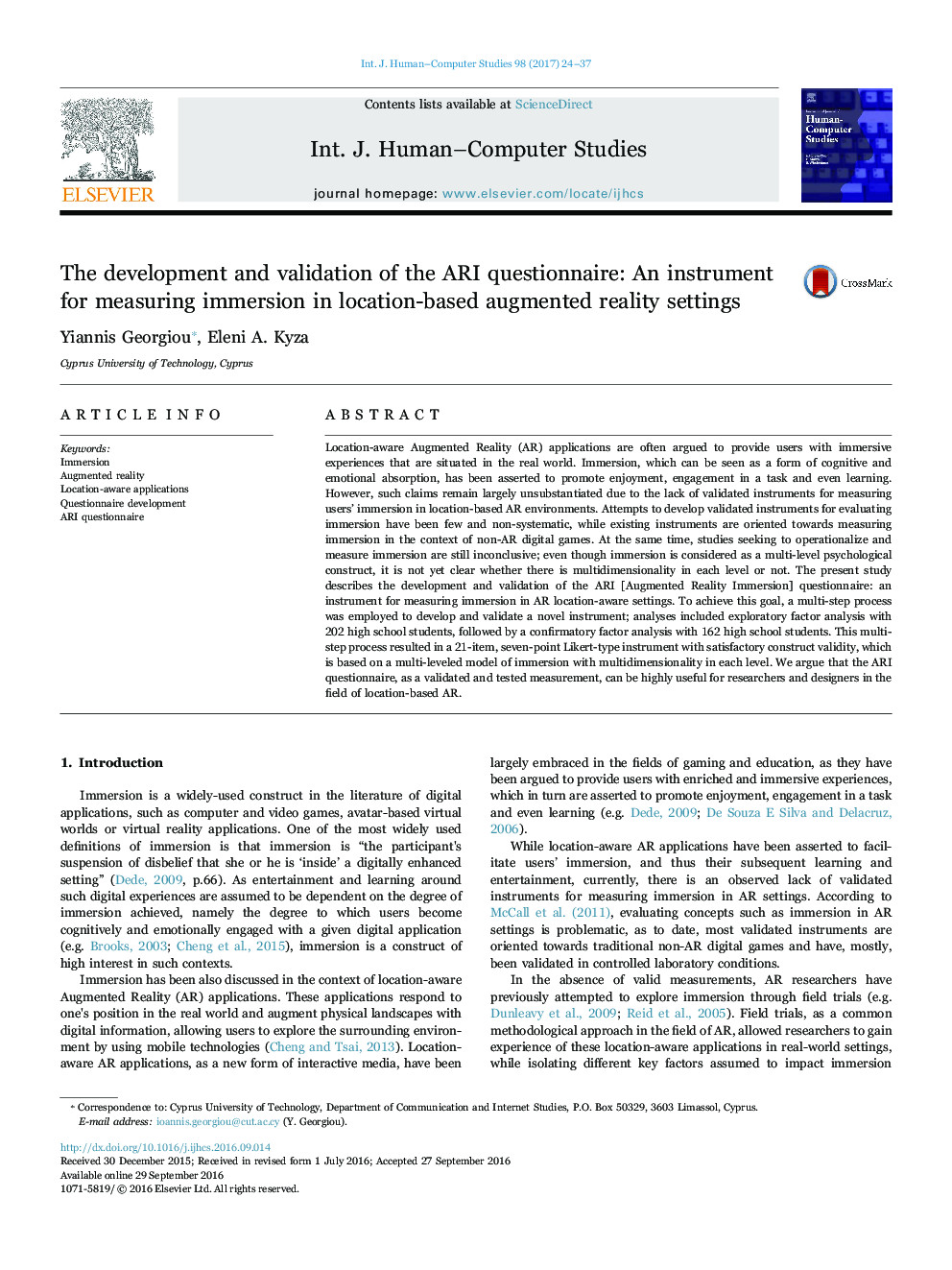| Article ID | Journal | Published Year | Pages | File Type |
|---|---|---|---|---|
| 4945838 | International Journal of Human-Computer Studies | 2017 | 14 Pages |
Abstract
Location-aware Augmented Reality (AR) applications are often argued to provide users with immersive experiences that are situated in the real world. Immersion, which can be seen as a form of cognitive and emotional absorption, has been asserted to promote enjoyment, engagement in a task and even learning. However, such claims remain largely unsubstantiated due to the lack of validated instruments for measuring users' immersion in location-based AR environments. Attempts to develop validated instruments for evaluating immersion have been few and non-systematic, while existing instruments are oriented towards measuring immersion in the context of non-AR digital games. At the same time, studies seeking to operationalize and measure immersion are still inconclusive; even though immersion is considered as a multi-level psychological construct, it is not yet clear whether there is multidimensionality in each level or not. The present study describes the development and validation of the ARI [Augmented Reality Immersion] questionnaire: an instrument for measuring immersion in AR location-aware settings. To achieve this goal, a multi-step process was employed to develop and validate a novel instrument; analyses included exploratory factor analysis with 202 high school students, followed by a confirmatory factor analysis with 162 high school students. This multi-step process resulted in a 21-item, seven-point Likert-type instrument with satisfactory construct validity, which is based on a multi-leveled model of immersion with multidimensionality in each level. We argue that the ARI questionnaire, as a validated and tested measurement, can be highly useful for researchers and designers in the field of location-based AR.
Related Topics
Physical Sciences and Engineering
Computer Science
Artificial Intelligence
Authors
Yiannis Georgiou, Eleni A. Kyza,
